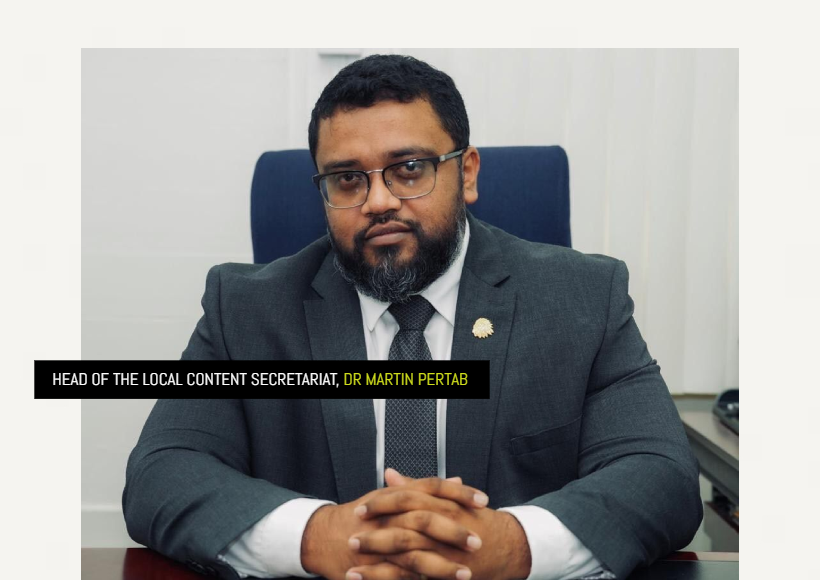The Government of Guyana has made known, on several occasions, its intolerance for foreign companies that engage “rent-a-citizen” and “fronting” schemes to flout the country’s Local Content Law which sets aside benefits for Guyanese companies in the oil and gas industry.
In a recent appearance on the Energy Perspectives Podcast, Dr. Martin Pertab, the Director of the Local Content Secretariat, revealed that the Secretariat is taking action to root out such practices. In fact, Dr. Pertab revealed that regulators now require the submission of the shareholder agreements for joint ventures between local and foreign companies. This requirement aims to ensure that local partners are not merely listed on paper as beneficiaries but actually hold genuine ownership and control, as stipulated by the Local Content Act.
During the interview, Dr Pertab said, “The law is very clear on beneficial ownership, meaning that not only on paper, should Guyanese get 51%, but you must demonstrate ownership in terms of control management of the company.” The Local Content Act designates 40 categories of services exclusively for Guyanese businesses with varying targets. If foreign companies wish to participate in these areas, they must have a Guyanese partner who holds 51 percent ownership. Despite these provisions, the Secretariat has identified attempts by foreign companies to circumvent the law to gain access to these reserved areas, thereby undermining the Act’s spirit and intent.
The Director even highlighted troubling clauses in some agreements that they have reviewed. “We have seen…some of the agreements in favour of the foreign counterpart would be like, you know, one, you can’t sell the share, two you can’t make any decision without our input, though we own 49 percent,” Dr Pertab said. He continued, “When you look at it, that is not beneficial ownership. How can you have 51% of the shares, and yet you can’t make decisions by yourself…” Dr Pertab underscored that in the joint venture with a local and foreign counterpart, the local beneficiary with 51% or more ownership must be able to make decisions on their own in order to qualify for the local content certificate. Further, he stated that in cases where the Secretariat is still not satisfied, its officers will request audited financial statements to verify claims of ownership.













